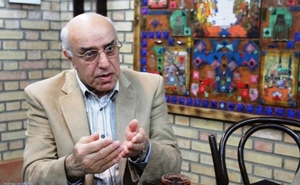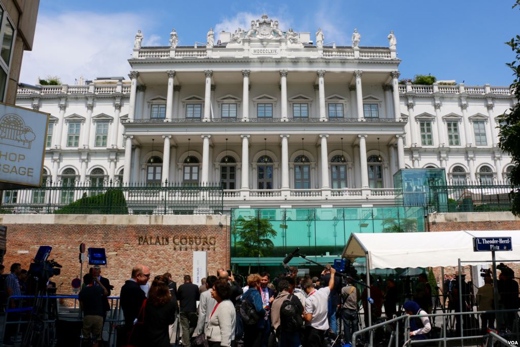
Professor Pirouz Mojtahedzadeh, a renowned Iranian political scientist, historian and expert in international affairs, says that nuclear talks between Iran and P5+1 will never break down and that the two sides will eventually walk away from the negotiating table with a deal in hand.
Prof. Mojtahedzadeh, who is also a prominent Iranologist and geopolitical researcher, made the comment in an interview with fararu.com on July 11 about the fate of nuclear negotiations and added that the talks will not remain deadlocked even if they seem on course to reaching a stalemate.
He also touched on the course the talks took in the last round during which hopes of striking a comprehensive nuclear deal was replaced by despair as the two sides put new options on the table and words swirled that the talks seemed likely to end inconclusively.
The following is the translation of excerpts from his remarks in the interview:
[…]
The main parties to nuclear talks – the Islamic Republic of Iran and the United States – took stances [in the latest round of nuclear talks, days before the July 7 deadline] which were not in keeping with what they had previously announced. The Americans said their patience was running thin because of prolonged talks and the Iranians talked about US efforts to change horses in midstream.
The new stances and approaches [taken by the two sides] seemed strange, because they were not in conformity with the analyses and predictions based on the signs which had earlier pointed to an agreement. That the two sides – who had successfully jumped over the big hurdles that lay ahead – suddenly behaved in a way that dashed any hope of clinching a deal defied all expectations.
This change of course by two sides is likely to have been tactical to appease opponents at home and abroad. We all got familiar with the components necessary to clinch a deal a long time ago and we know about the characteristics of a deal which can satisfy the two parties [to the dispute]. Since the framework of the deal has already been set, creation of new frameworks would do little to help the two sides strike an agreement.
That’s why I hope this change of heart or change of course, which has been adopted by either side, is nothing more than theatrics to catch the attention of people at home and a tactic to appease domestic and foreign critics. Otherwise, this will prove that honesty and integrity are missing in the talks.
Derailing tactics
When talks drag on and the parties involved stand their ground and raise new demands which go beyond the framework of the talks – the latter is a change of course – this can somehow convince the critics the negotiating countries have to face at home and abroad that they [the negotiators] have stuck to their guns to the bitter end and seek to give as few concessions as possible to the other side.
Over the past several days, Israeli officials have expressed concern over any nuclear agreement between Iran and P5+1. The illegitimate demands of the Zionist regime for the continuation of Iran’s arms embargo – despite the fact that concerns about the true nature of Iran’s nuclear program have been eased – are a reflection of Tel Aviv’s concerns.
One sticking point in the prolonged nuclear talks has reportedly been the insistence by P5+1, especially the US, on the continued arms embargo against Iran. This comes as Iran’s arms embargo has been imposed within the framework of a UN Security Council resolution and in the wake of concerns over the nature of Iran’s nuclear program.
Accordingly, if Iran’s confidence-building measures which are in line with the framework of a comprehensive nuclear deal can remove concerns about the nature of its atomic program, the continuation of Iran’s arms embargo would be out of the question. Therefore, insistence on such an illegitimate demand which has prolonged the process that could lead to the conclusion of a comprehensive deal can be a show aimed at satisfying the main critic of the talks: Israel.
It is regrettable that an administration headed by a weak-kneed president gives in to pressures and resorts to such an approach to give concessions to Israel, so that the regime can stay calm for a while.
Agree to disagree?
This [holding one’s ground and making illegitimate demands] will not continue forever. It is public knowledge that a nuclear deal between Iran and P5+1 is certain to happen. Neither side of the talks will accept the breakdown of the talks at this stage [home stretch]. Even if the talks led to a deadlock, they would not remain deadlocked [forever]. They will find a path to conclusion of a deal, one way or another.
The reason why neither side will agree that the talks have failed is clear: a breakdown in talks will translate into the failure of the policies of the two sides, especially the United States. The collapse of nuclear talks will spell the failure of Barack Obama’s doctrine and [the end of his] political life as well as the unproductiveness of the US geopolitical plans in the Middle East.
[…]
